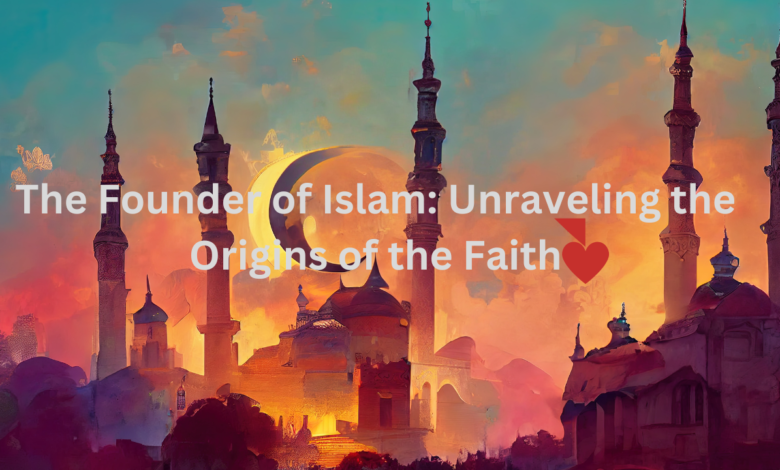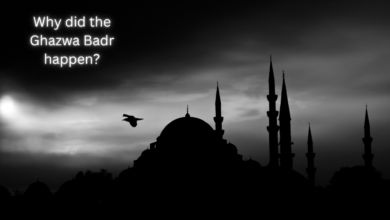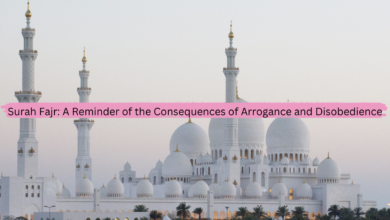The Founder of Islam: Unraveling the Origins of the Faith

Introduction
Islam, one of the world’s major religions, is followed by over a billion people worldwide. Rooted in the Arabian Peninsula, Islam’s history is inseparably linked to its founder, a man who played a pivotal role in shaping the faith and its teachings. In this article, we will explore the life of the founder of Islam and delve into the key events that led to the birth of this influential religion.
The Life of the Prophet Muhammad
The founder of Islam is the Prophet Muhammad, who was born in Mecca in present-day Saudi Arabia around 570 CE. Muhammad’s early life was marked by hardship, as he lost both his parents at a young age and was raised by his grandfather and later his uncle. His youth was characterized by a reputation for honesty, integrity, and wisdom, earning him the nickname “Al-Amin” (the trustworthy).
At the age of 25,Muhammad married Khadijah, a successful merchant, and they enjoyed a loving and supportive relationship. It was around the age of 40 that Muhammad experienced a transformative event that changed the course of his life and ultimately gave birth to Islam.
The Revelation and the Quran
In 610 CE, while meditating in a cave on Mount Hira, near Mecca, Muhammad received his first divine revelation from the Angel Gabriel. Over the next 23 years of his life, he continued to receive revelations, which were later compiled into the holy book of Islam, the Quran. These revelations contained guidance, moral teachings, and the principles that form the foundation of Islamic belief and practice.
Preaching Islam and the Early Converts
Following his divine encounters, Muhammad began to preach the message of Islam openly. Initially, his message faced resistance from the people of Mecca, particularly from the ruling elite who perceived the monotheistic teachings as a threat to their lucrative polytheistic pilgrimage trade centered around the Kaaba, the ancient holy sanctuary.
Despite initial opposition, Muhammad gained a following among the marginalized and oppressed in society, attracting both men and women, the poor, and the enslaved. Some notable early converts included Abu Bakr, who later became the first Caliph, and Ali, Muhammad’s cousin and son-in-law.
The Migration to Medina
As the number of converts grew, so did the hostility from the ruling elite in Mecca. In 622 CE, facing increasing persecution, Muhammad and his followers migrated to the city of Yathrib, later known as Medina. This event, known as the Hijra, marks the beginning of the Islamic lunar calendar and is considered a crucial turning point in the history of Islam.
In Medina, Muhammad established a multi-religious and multi-ethnic society, fostering alliances with Jewish and Christian communities while unifying the Arab tribes under the banner of Islam. His leadership and wisdom helped resolve long-standing conflicts and provided a stable foundation for the burgeoning faith.
The Return to Mecca and the Triumph of Islam
In 630 CE, Muhammad and his followers marched back to Mecca, where he was met with minimal resistance. He demonstrated remarkable clemency and forgave those who had previously opposed him, declaring general amnesty.
Upon entering the city, Muhammad destroyed the idols inside the Kaaba, rededicating the holy sanctuary to the worship of the one true God, Allah. This event symbolized the triumph of Islam in the Arabian Peninsula and led to the widespread acceptance of the faith throughout the region.
Legacy and Impact of Muhammad
Muhammad’s death in 632 CE marked the end of his prophethood, but his legacy continued to shape the course of Islamic history. His exemplary character, compassion, and teachings on justice, mercy, and tolerance became the guiding principles for Muslims worldwide.
Under the leadership of the four Rightly Guided Caliphs—Abu Bakr, Umar, Uthman, and Ali—Islam spread rapidly, reaching far beyond the Arabian Peninsula, reaching parts of Africa, Asia, and Europe. Throughout history, Islamic civilization made significant contributions to science, mathematics, art, and culture.
Conclusion
The founder of Islam, the Prophet Muhammad, was a visionary leader whose life and teachings laid the groundwork for one of the world’s largest religions. His divine revelations, compiled in the Quran, serve as a moral compass for Muslims, guiding them on matters of faith, ethics, and daily living. Muhammad’s legacy continues to inspire millions of believers worldwide, shaping their spiritual beliefs, cultural practices, and contributions to humanity. Understanding the life of the founder is key to appreciating the historical and cultural significance of Islam in the modern world.






